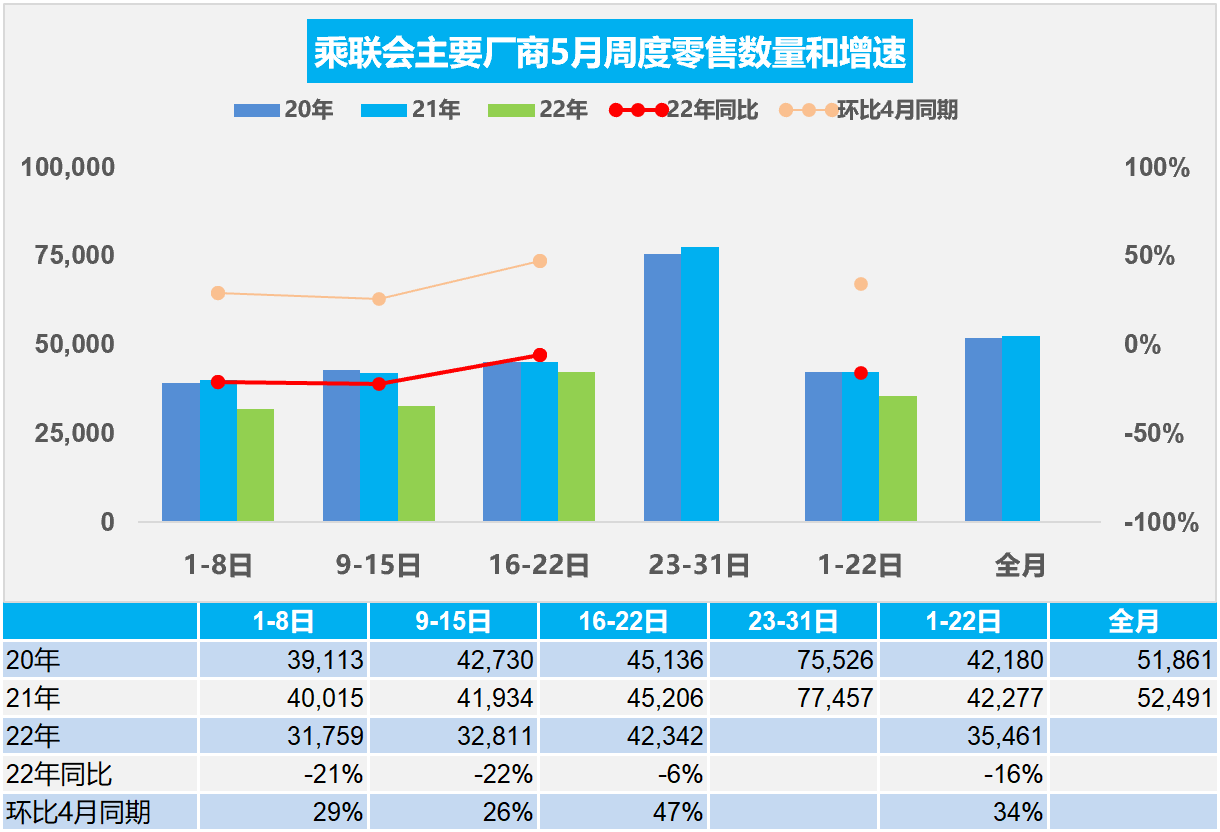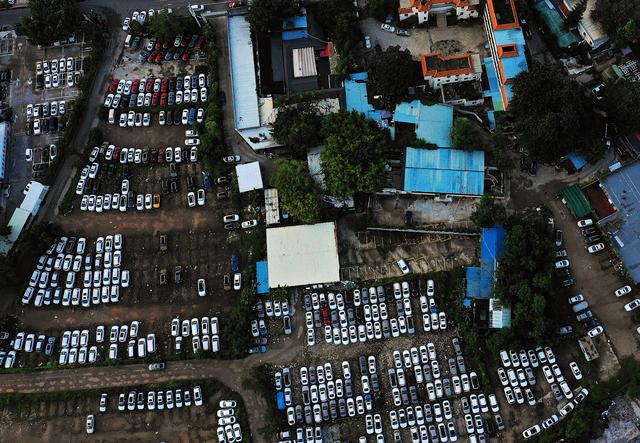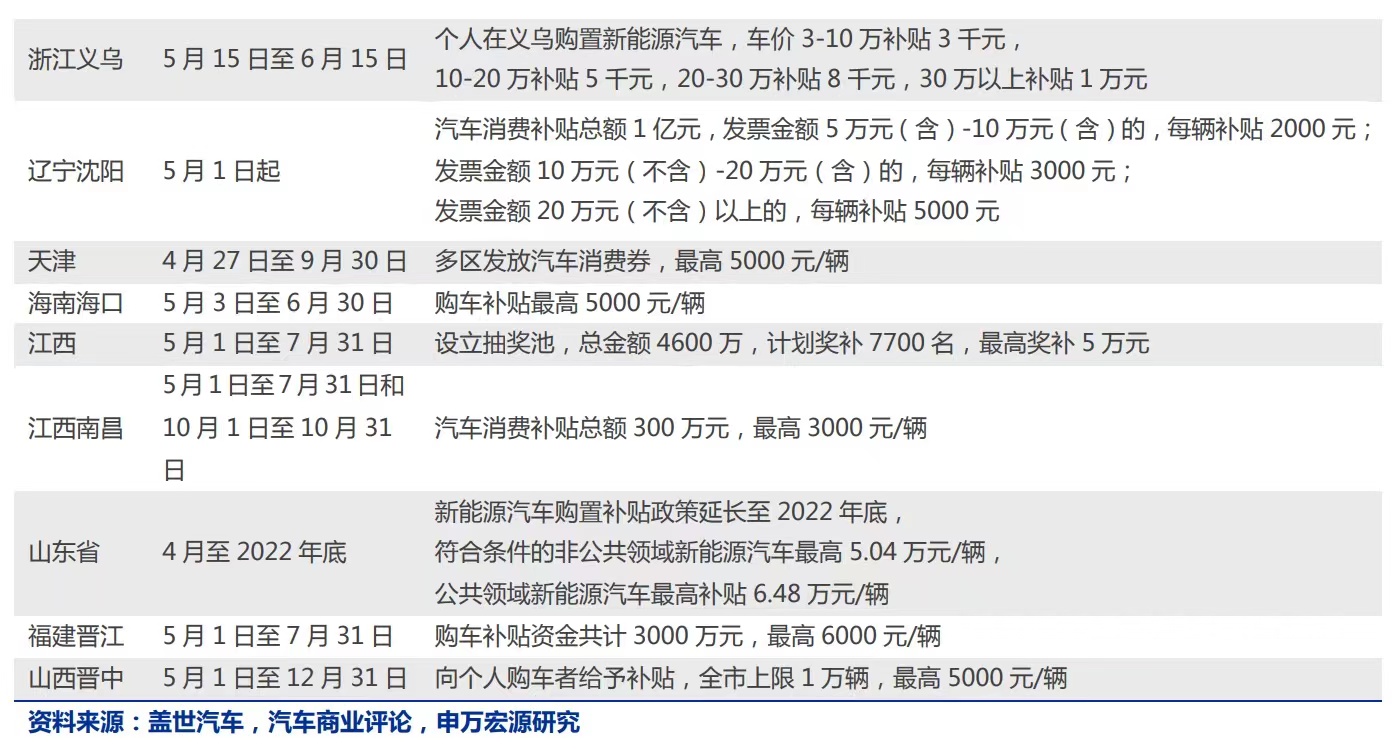In addition to Weibo, there is also WeChat
Please pay attention

WeChat public account
AutoBeta


2024-11-17 Update From: AutoBeta autobeta NAV: AutoBeta > News >
Share
AutoBeta(AutoBeta.net)05/26 Report--
On May 26, Shenzhen issued a number of measures to promote the sustainable recovery of consumption in Shenzhen. It is mentioned that Shenzhen will give a maximum subsidy of no more than 10,000 yuan each for individual consumers to buy new energy vehicles. At the same time, the national policy of exemption from vehicle purchase tax for new energy vehicles will be fully implemented. At the same time, Shenzhen relaxed the application conditions for hybrid cars, allowing individuals with only one car registered in Shenzhen to buy qualified hybrid cars and apply for licensing indicators. The policy will be implemented from the date of issuance and will be valid until December 31, 2022.

Affected by the epidemic, the production of auto parts manufacturers stagnated, resulting in car companies to reduce production or stop production, at the same time logistics and transportation was blocked, market performance suffered a serious impact. Retail sales in the passenger car market in April were 1.042 million, down 35.5% from a year earlier and 34.0% from a month earlier, according to the Federation of passengers. According to data released by the Federation of passengers on May 25, retail sales in the national passenger car market in the first three weeks of May (1-22) were 780000, down 16 per cent from a year earlier and up 34 per cent from a month earlier.
Although Jiangsu, Zhejiang and Shanghai have resumed closed production and point resumption, capacity utilization is not high and is expected to return to normal level in June, coupled with the impact of supply chain and logistics, resulting in a continuous impact on vehicle production and sales in the upper, middle and lower reaches of the automobile industry. As a result, the state and local governments began to help the automobile industry one after another.
On May 23, Premier Li Keqiang presided over an executive meeting of the State Council, which further deployed a package of measures to stabilize the economy, striving to get the economy back on track and ensuring that it operates within a reasonable range. In terms of automobiles, including promoting consumption and effective investment, the purchase tax on some passenger cars will be reduced by 60 billion yuan in stages. In addition, the 90 billion yuan truck loan issued by central automobile enterprises requires banks and enterprises to postpone the repayment of principal and interest for half a year.

From the perspective of historical development, two rounds of relatively large automobile consumption stimulus policies have been implemented in China, both of which effectively increased domestic car sales by 7.5% from 2009 to 2010. superimposed subsidy policies for cars going to the countryside, trade-in for new cars, and early scrapping of old cars; and purchase tax incentives of 5 per cent from 2015 to 2016 to 7.5 per cent in 2017, superimposed with subsidies for early scrapping of old cars. Spurred by the policy, passenger car sales rose 52.93% to 10.3313 million in 2015 compared with the same period last year, 33.17% to 13.7578 million in 2010, and 21.1463 million, 24.377 million and 24.718,300 respectively in China from 2009 to 2017, up 7.3%, 15.28% and 1.4% respectively. Therefore, the phased purchase tax relief policy issued by the State Council will also become a strong starting point for the automobile market, and the introduction of the policy is beneficial to the overall automobile consumption, and will also boost the confidence of the automobile industry and the Chinese economy as a whole.

It is worth noting that in order to boost automobile consumption, local governments have also introduced measures to stimulate automobile consumption one after another. According to incomplete statistics, so far, Beijing, Shanghai, Guangdong Province, Zhejiang Province, Sichuan Province, Hubei Province, Hunan Province, Jilin Province and other places have successively introduced a variety of measures to encourage car consumption, including car purchase subsidies, increasing indicators, and so on.
In addition, the policy of going to the countryside is expected to be introduced as soon as early June, encouraging cars with models of less than 150000 yuan (including fuel vehicles and new energy vehicles), with subsidies ranging from 3000 yuan to 5000 yuan per vehicle, according to the China Securities News. Experts predict that going to the countryside will boost sales of 200000-300000 fuel vehicles and 300000-500000 new energy vehicles. However, insiders of the China Association of Automobile Manufacturers said, "many policies are under intense study, and we are not sure exactly which and how."
Some people in the industry speculate that the policy introduced this time is more beneficial to fuel vehicles. Cui Dongshu analysis said that the current decline in sales of traditional fuel vehicles of independent brands is mainly due to problems in the purchasing power of ordinary consumers, unstable consumption mentality, the need to encourage fuel vehicle consumption and achieve differentiated car purchase options. On the other hand, many of the independent brand traditional fuel A-class cars are less than 80,000 yuan, which has a great price advantage. In addition, "the development of new energy vehicles has been very good, and even a little too much, there is no need to make up for it." As of the end of April, there are still 60-800000 orders for new energy passenger vehicles that have not yet been delivered. " Therefore, the purchase tax reduction of 60 billion yuan is largely aimed at stabilizing the fuel vehicle market.
In the face of the downward situation of the automobile market, car companies attribute the problem to the limitations of production and supply chain, but from a deeper point of view, the decline in market demand is more worthy of attention. Cui Dongshu, secretary general of the Federation of passengers, said, "apart from the reduction in production brought about by the supply chain and the epidemic, the biggest difficulty facing China's passenger car market at this stage is the decline in demand." Under the epidemic, the domestic tertiary industry has been badly hit, and consumers' demand for cars and their ability to buy cars have been greatly affected. And stimulate terminal consumer demand, the most direct and effective means is the purchase tax reduction policy, this 60 billion quota policy is very strong. "
The industry is generally optimistic about this policy, after all, the purchase tax preferential policy in the past has indeed brought substantial growth to the car market. Recently, most auto stocks have continued to rise, including Changan Automobile, Great Wall Motor, SAIC Group, Jiangling Motor and so on. However, industry insiders believe that car companies should look at the effect of policy stimulus objectively, and it is not easy for similar stimulus to achieve flat and promote structural growth, which is unlikely to lead to retaliatory growth in the second half of the year.
Welcome to subscribe to the WeChat public account "Automotive Industry Focus" to get the first-hand insider information on the automotive industry and talk about things in the automotive circle. Welcome to break the news! WeChat ID autoWechat
Views: 0
*The comments in the above article only represent the author's personal views and do not represent the views and positions of this website. If you have more insights, please feel free to contribute and share.











© 2024 AutoBeta.Net Tiger Media Company. All rights reserved.